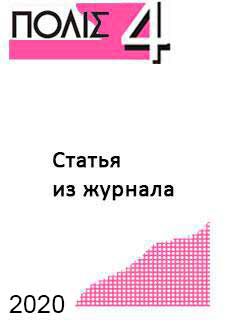Online shop of "Polis. Political Studies" Journal
We in the world, the world in us
Malakhov V.S., Kascian K. The EU’s Migration Dilemma: Legal and Political Dimensions. – Polis. Political Studies. 2020. No. 4. P. 139-151. (In Russ.).
Free!
forced migration, European Union, migration crisis, refugees, Visegrád Group, European Court of Justice, EU Migration Policy.
The article seeks to develop a nuanced understanding of the contradictory approaches EU political elites have taken regarding the problem of forced migration, which intensified as a result of the 2015 migration crisis. To do so, the authors analyze the content of judicial disputes between the European Commission and the Visegrád Group countries concerning refugee distribution quotas, identify the main disagreements among the major European political actors which developed as a result of their different approaches to forced migration, and demonstrate the current state of affairs in this sphere from the decision-making perspective. The authors provide an in-depth analysis of the legal arguments presented by these parties before the European Court of Justice, and come to a conclusion about the political nature of this conflict. Plaintiffs and defendants do not merely interpret the acquis communautaire differently – they have diametrically opposed views on the contents of the problem of forced migration. As for attitudes towards how refugees are received, the “power landscape” within the EU is determined by the confrontation between the liberal and conservative centers; the former is represented somewhat arbitrarily by Brussels (being home to the European Commission and the European Court of Justice), as well as by the leadership of Germany and Sweden, whereas the latter is composed of the governments of the Visegrád Group and Italy. Several states tend to lean toward one of these two sides. However, most EU member states do not hold an extreme position on the issue of refugees, preferring instead to fluctuate between these two principles. On the one hand, they are committed to humanistic values and pan-European solidarity; on the other hand, protecting national sovereignty and security is important to them. This contradiction manifests itself both in the vagueness of their leaders’ public rhetoric and in the endless delay and half-hearted character of their decisions. Having analyzed the behavior and policies of these national governments over the past four years, the authors found that all major players within the EU are quite willing to compromise. This suggests that there is no threat of the EU collapsing under the pressure of the contradictions caused by migration.
 English
English Русский
Русский

Reviews
There are no reviews yet.